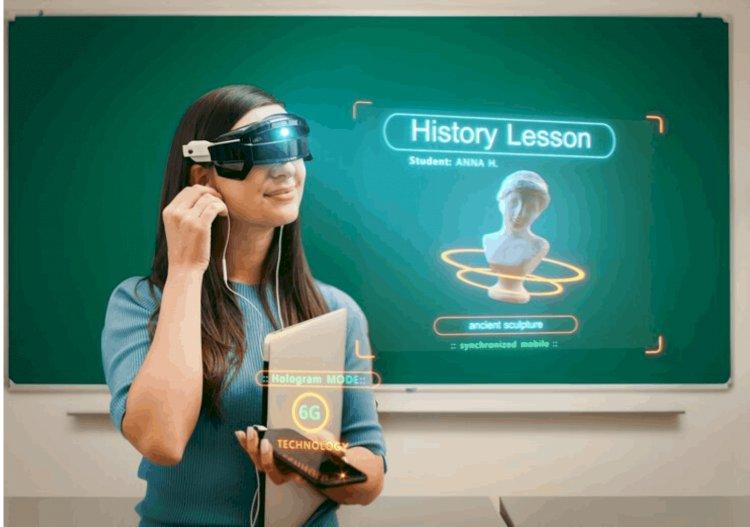Transformative Role of AI in Learning and Teaching
Explore the game-changing impact of AI in education! Dive into the Transformative Role of AI in Learning and Teaching for a brighter, personalized future.

Transformative Role of AI in Learning and Teaching:
In the ever-evolving landscape of education, Artificial Intelligence (AI) is emerging as a transformative force, reshaping the way we learn and teach. This technological marvel is not just a futuristic concept but a present-day reality that holds immense potential to revolutionize education across the globe.
AI in Personalized Learning
One of the most significant impacts of AI in education is its ability to personalize learning experiences. Traditional classrooms often struggle to cater to individual learning styles and paces, leaving some students behind. AI addresses this challenge by analyzing individual student performance and adapting content delivery accordingly. Personalized learning paths, tailored to each student's strengths and weaknesses, not only enhance understanding but also foster a deeper engagement with the subject matter.
Enhancing Teacher Efficiency with AI
AI is not here to replace teachers; rather, it acts as a valuable assistant, freeing up educators' time for more meaningful interactions with students. Routine tasks, such as grading assignments and generating progress reports, can be automated, allowing teachers to focus on refining their teaching strategies, providing emotional support, and cultivating critical thinking skills in their students. This shift in responsibilities empowers educators to create a more enriching and impactful educational experience.
Intelligent Tutoring Systems
Imagine having a personal tutor available 24/7 to guide you through your academic journey. AI makes this concept a reality with Intelligent Tutoring Systems (ITS). These systems analyze student responses, identify areas of difficulty, and provide targeted feedback and additional resources. Whether a student needs extra practice in mathematics or requires clarification on a complex scientific concept, an ITS ensures that learning is not limited to the confines of the classroom.
Adaptive Learning Platforms
Traditional one-size-fits-all approaches to education are becoming obsolete, thanks to AI-driven adaptive learning platforms. These platforms assess a student's progress in real-time and adjust the difficulty and pace of the content accordingly. Whether a student is ahead of the curve or needs additional support, adaptive learning ensures that each student receives a customized educational experience, fostering a more inclusive and effective learning environment.
AI for Early Intervention
Identifying and addressing learning challenges early is crucial for a student's academic success. AI tools can analyze patterns in student performance and behavior to detect signs of struggle or disengagement. By providing early intervention, educators can offer targeted support to prevent academic setbacks and ensure that each student reaches their full potential.
Breaking Language Barriers
For students learning in a language that is not their native tongue, AI-driven language translation tools can be a game-changer. These tools facilitate better understanding of instructional content, enabling students to overcome language barriers and actively participate in the learning process. This inclusivity is particularly significant in a globalized world where diverse linguistic backgrounds are common in educational settings.
AI and Skill Development
Beyond academic subjects, AI plays a pivotal role in developing essential skills for the future. By incorporating AI into the curriculum, students gain exposure to problem-solving, critical thinking, and creativity – skills that are increasingly valuable in the workforce. AI simulations and virtual environments provide hands-on experience in applying theoretical knowledge to real-world scenarios, preparing students for the challenges of an AI-driven workplace.
Addressing Ethical Considerations
While the transformative role of AI in education is promising, it is essential to address ethical considerations. Ensuring data privacy, avoiding bias in algorithms, and maintaining transparency in AI-driven decision-making processes are paramount. Striking a balance between harnessing the power of AI and upholding ethical standards is key to realizing the full potential of this technology in education.
In conclusion, the transformative role of AI in learning and teaching is not a distant vision but a current reality reshaping the educational landscape. From personalized learning experiences to intelligent tutoring systems, AI is enhancing education in ways that were once unimaginable. As we embrace these advancements, it is crucial to remain mindful of ethical considerations, ensuring that the benefits of AI are harnessed responsibly for the betterment of education worldwide. The future of learning is here, and AI is at its forefront, guiding us towards a more inclusive, personalized, and impactful educational journey.
-
In the ever-evolving educational landscape, the transformative role of AI in learning and teaching is reshaping traditional paradigms.
-
AI's transformative role goes beyond automation, offering personalized learning experiences that cater to individual student needs and pace.
-
Educators are leveraging the transformative power of AI to enhance teaching efficiency, allowing for more meaningful interactions with students.
-
Intelligent Tutoring Systems and adaptive learning platforms epitomize the transformative role of AI by tailoring education to individual strengths and weaknesses.
-
The transformative role of AI in learning and teaching is not just about academic subjects; it extends to skill development, preparing students for the challenges of the future workforce.

 bloggeramar
bloggeramar 

































